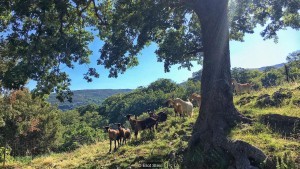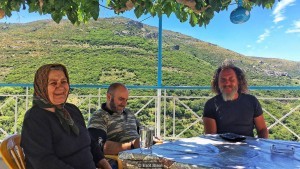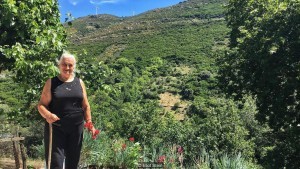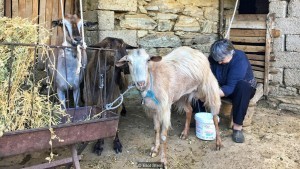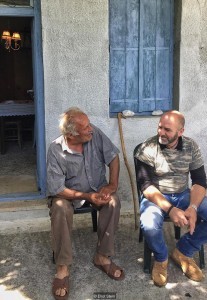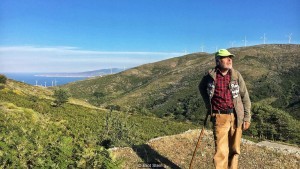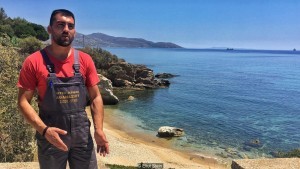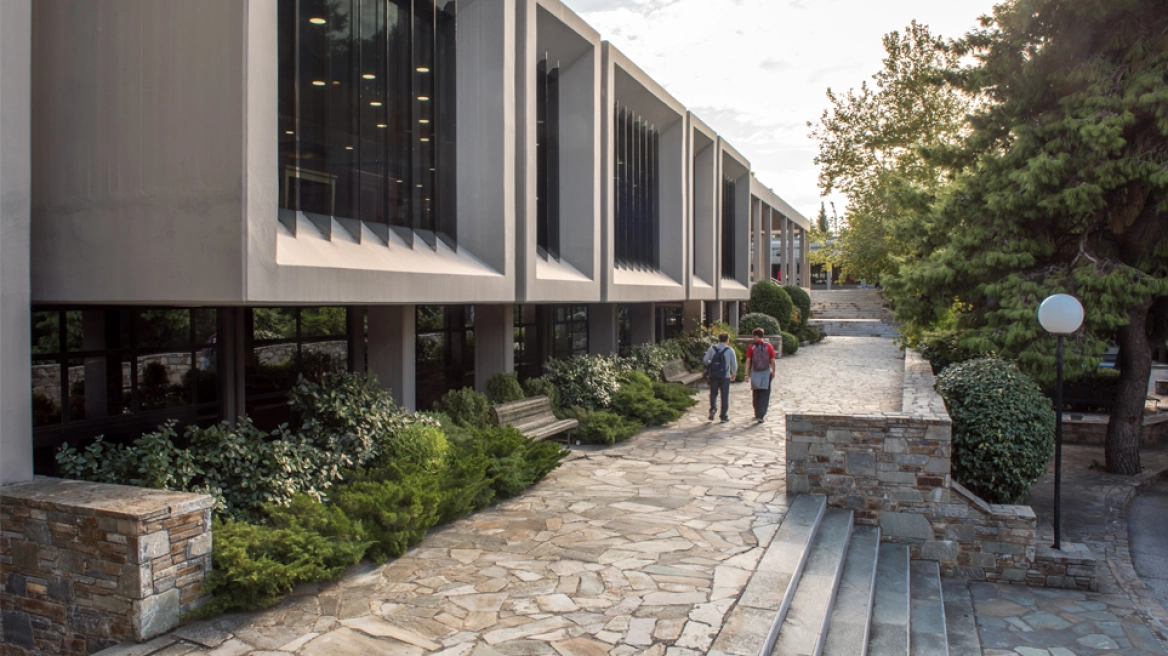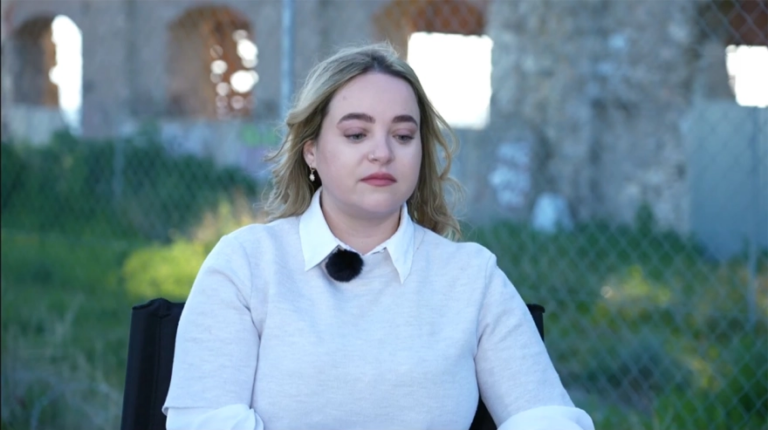For some 2,500 years, residents of this mountainous village have used an astonishing language that only they understand. But there are only six people left who can ‘speak’ it.
Hidden deep in the south-east corner of the Greek island of Evia, above a twisting maze of ravines that tumbles toward the Aegean Sea, the tiny village of Antia clings to the slopes of Mount Ochi. There are no hotels or restaurants within 40km, and the tiny place is so remote that it doesn’t exist on Google Maps.
But as you travel here along a dizzying road from Karystos, through a mythical landscape of megalithic ‘dragon house’ stone tombs and giant Cyclopic boulders, you’ll hear an ancient siren song reverberating against the mountain walls. That’s because for thousands of years, the inhabitants of Antia have used a remarkable whistled language that resembles the sounds of birds to communicate across the distant valleys.
(The tiny village of Antia clings to the slopes of Mount Ochi on the Greek island of Evia)
Known as sfyria, it’s one of the rarest and most endangered languages in the world – a mysterious form of long-distance communication in which entire conversations, no matter how complex, can be whistled. For the last two millennia, the only people who have been able to sound and understand sfyria’s secret notes are the shepherds and farmers from this hillside hamlet, each of whom has proudly passed down the tightly guarded tradition to their children.
But in the last few decades, Antia’s population has dwindled from 250 to 37, and as older whistlers lose their teeth, many can no longer sound sfyria’s sharp notes. Today, there are only six people left on the planet who can still ‘speak’ this unspoken language – and one of them recently invited me to Antia so I could meet the last whistlers of Greece.
(Aristi Tsipas -left- used to whistle to her family from across the valley)
When I arrived, a 45-year-old farmer named Yiannis Apostolou was waiting for me outside the village’s lone store. After greeting me in Greek, he gazed out onto the rolling chasm below the village, tucked his tongue under his bottom teeth and fired a fluted melody into the abyss.
“Koula? Tsipas? We have company!” he said, by way of a translator.
Soon, Koula, a slight 76-year-old woman emerged from a stone dwelling high on the mountainside, popped in her dentures and whistled back, turning this jaunty solo into a duet. “Well, what are you waiting for?” she responded over a clanging chorus of goat bells. “Come on up here!”
As two other villagers descended from the hills to join us, Apostolou asked each of us if we’d like something to drink and then whistled a string of chirps toward the store’s open door. Moments later, owner Maria Kefalas came out with a bottle of water, two cups of tea and a glass of sour cherry vissinada juice – arranging each perfectly on the table in front of us.
(Zografio Kalogirou says she used to be the best whistler in town)
No-one can recall exactly how or when the villagers here began using sfyria – which comes from the Greek word sfyrizo, meaning ‘whistle’ – to communicate. Some residents speculate that it came from Persian soldiers who sought refuge in the mountains some 2,500 years ago. Others claim the language developed during Byzantine times as a secret way to warn against danger from rival villages and invading pirates. There’s even a belief that in ancient Athens, they’d post whistlers from Antia on the mountaintops as sentries so they could signal an imminent attack on the empire.
Remarkably, sfyria was only discovered by the outside world in 1969, when an aeroplane crashed in the mountains behind Antia. As the search crew went out to look for the missing pilot, they heard shepherds volleying a series of trilled scales back and forth across the canyons and became enchanted by their cryptic code.
(Aside from Antia’s shepherds and farmers, few people can understand sfyria’s notes)
According to Dimitra Hengen, a Greek linguist who accompanied me to Antia, sfyria is effectively a whistled version of spoken Greek, in which letters and syllables correspond to distinct tones and frequencies. Because whistled sound waves are different from speech, messages in sfyria can travel up to 4km across open valleys, or roughly 10 times farther than shouting.
“As a girl, I’d practice deep into the night with my head buried under the covers,” remembered Zografio Kalogirou, a 70-year-old villager with lace-white hair. “I used to be able to whistle across the mountaintops when I had my teeth. I was so proud. Now I’m so ashamed. All I can do is eat.”
For those with a strong bite or modern implants, this ancient form of wireless communication has remained especially useful over the years in a far-flung place like Antia.
(Yiannis Tsipas -right- hopes to one day teach sfyria to his son)
Albania ready to launch two satellites into space in 2022; PM Edi Rama mocked
“Roads, water and electricity only came here 30 years ago, and there’s still no mobile phone service,” said Yiannis Tsipas, a 50-year-old goat herder and the youngest whistler in the village after Apostolou. “Until 1997, Koula had the only phone in Antia, so whenever anyone would go to Athens, they’d call her to say that they arrived safely and she’d whistle the news down to the family.”
While I sipped my vissinada, Kefalas’ face lit up as she told of how sfyria can also be used to coyly court other villagers.
“One night, a man was in the mountains with his sheep when it started snowing. He knew that somewhere deep in the mountains there was a beautiful girl from Antia with her goats. So he found a cave, built a fire and whistled to her to come keep warm. She did, and that’s how my parents fell in love.”
(Panagiotis Skopelitis is one of only 37 people left in Antia)
Today there are as many as 70 other whistled languages in the world, and they all exist in remote mountain villages like Antia. After all, it’s easier to purse your lips than to scramble up and down the mountainsides whenever you want to invite your neighbours over for a glass of ouzo.
Yet, not only is sfyria believed to be older and more structured than many other whistled languages, it’s also the most critically endangered. In fact, according to the Unesco Atlas of the World’s Languages in Danger, no other language in Europe – whistled or not – has fewer living speakers than sfyria.
“By nature, a whistled language is already much more threatened than a spoken language because it’s much harder to reproduce,” Hengen said. “Unless something drastic here changes, I foresee sfyria vanishing in the very near future, and it’s a tragedy.”
While many of the elderly whistlers here have died or lost their teeth, the younger ones have moved to Athens. And today, several of the last whistlers of Antia – like Apostolou – no longer live in the village.
(Many of Antia’s younger residents have moved away; Panagiotis Bournousouzis, 31, is the youngest speaker of the village’s ancient language)
“I tried to stay until last year, but there’s no way to earn a living or raise a family here,” he said, staring out over a cluster of abandoned homes with roosters squawking on the roofs. “Today, there’s only one child left here.”
After ringing through the rugged landscape for dozens of generations, sfyria may well fade into the foggy depths under Mount Ochi with the two Yiannis. Apostolou doesn’t have any children, and while Tsipas hopes to one day teach his son the unique language of Antia, he lives an hour away by the nearest school.
“When I was a child, we had to learn sfyria with Greek to survive,” said Panagiotis Tzanavaris, a soft-spoken 69-year-old and Antia’s best whistler. “It’s our way of life, and if it disappears, so does the cultural identity of this village.”
So, in 2010, Tzanavaris set out on a quest to resuscitate the dying language, establishing the Cultural Organisation of Antia in the village’s closed-down, one-room schoolhouse.
Three years ago, he welcomed a team of linguists from Harvard and Yale universities to come record the whistlers’ notes for future generations. Last year, he and Apostolou were featured in a documentary that was screened at New York’s Metropolitan Museum of Art. And most recently, he kindly invited me to Antia.
Tzanavaris has also been doing something previously unheard of with his village’s tightly guarded tradition: teaching someone from another town how to whistle sfyria. After seven years of lessons, the youngest speaker of Antia’s ancient language is now a 31-year-old courier who lives 40km away in Karystos.
“For years, the people in Antia have been talking about a disappearing language,” Tzanavaris told me. “But with your help, maybe we can start talking about a language that survived”.
Source: BBC
Ask me anything
Explore related questions

